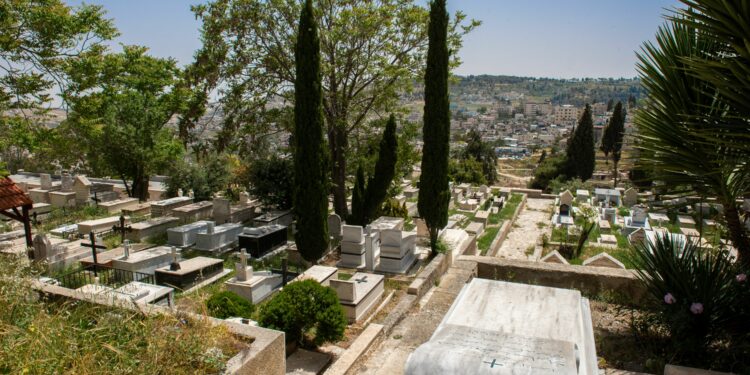According to Touma, the petition’s main arguments are threefold.
First, the Custody of the Holy Land claims that authorities have broken the promise made in 2017 not to run the cable car over the Franciscan cemetery on Mount Zion.
“Discrimination” is another important argument: “Lands owned by the state and used for public purposes that have been leased by the Israel Land Authority cannot be confiscated, while the land owned by the Church is going to be confiscated even though it is used for public purposes [cemetery].”
The accusation of discrimination is particularly loaded with meaning in a social and religious context like this one. In using this argument, there’s a growing sense among Christian churches that they are being targeted by Israeli institutions. The attack on properties would ultimately be nothing but a threat to their existence, carried out with different arguments whenever the opportunity arises.
The third argument concerns the nonnecessity of the land confiscation itself.
“According to previous judicial decisions,” Touma told CNA, “in order to confiscate land, it is necessary to demonstrate that the specific part of land is really needed and essential for the project. This justification was not provided.”
A land confiscation is the toughest and most extreme action of an administration and the Custody of the Holy Land considers it “not proportionate, not reasonable, and not just at all.”
“We must stop it, especially when we have the legal right and opportunity to do so,” Touma said. “We must take proactive steps to prevent any interventions that could dramatically affect the churches. It’s essential to establish clear boundaries and to make it unequivocally clear that we will not remain silent.”
Speaking to CNA, the custos of the Holy Land, Father Francesco Patton, lamented “the continuous assault on the Holy City by constructions and changes to the landscape, which sometimes even damage or expropriate Church properties.”
The fact that the confiscation of a cemetery area is at issue “aggravates the situation because traditionally, these areas are the most respected in the Holy Land,” he continued. “The issue of cemetery areas deeply touches the sensitivities of Jews, Muslims, and Christians alike. Wherever there are cemetery areas, they should be protected as much as possible.”
There is also another cemetery, belonging to the small Karaite community, a Jewish religious denomination, considered by some a sect, originating in Mesopotamia in the early eighth century, that is affected by the project. Its cemetery is located on the opposite side of the Hinnom Valley from the Catholic cemetery, on the slope beneath the Abu Tor neighborhood, opposite Mount Zion. The cable car would pass directly over it, and the community has objected to the project.
(Story continues below)
Subscribe to our daily newsletter
However, the high court dismissed the objections by the Karaite community, saying that if the Jerusalem authorities moved it, it would pass over the Catholic cemetery, which wasn’t possible due to their agreement with the Custody of the Holy Land. The fact that the promise to the custody is mentioned in a court ruling may strengthen the custody’s position.
Credit: Source link




